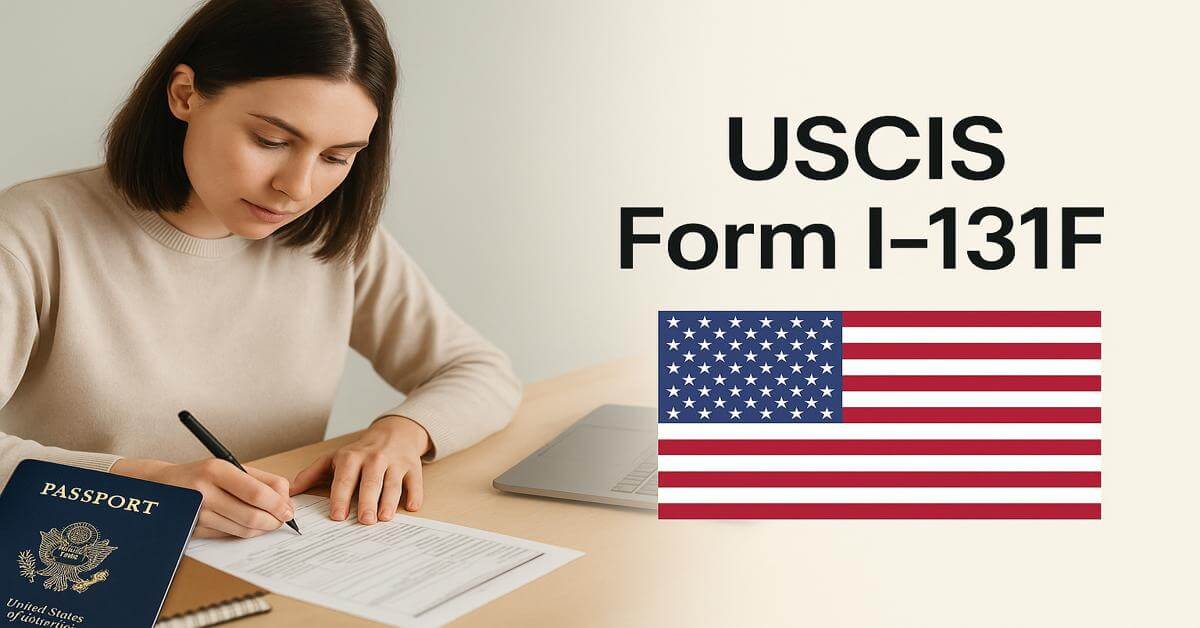A federal judge has struck down the Biden administration’s Parole in Place (PIP) expansion for undocumented spouses and stepchildren of U.S. citizens. As a result, Form I-131F is no longer available, and the U.S. Citizenship and Immigration Services (USCIS) has stopped processing all pending applications.
All upcoming biometric appointments tied to Form I-131F have also been canceled.
Introduction:
Form I-131F (officially: Application for Parole in Place for Certain Noncitizen Spouses and Stepchildren of U.S. Citizens) was part of the USCIS “Keeping Families Together” initiative. It allowed undocumented spouses and stepchildren to temporarily remain in the U.S. lawfully without being deported, while applying for green cards.
Check Also: USCIS I-797 Form – Complete Guideline
Cancelation:
On November 8, 2024, a federal district court declared the expanded parole program unlawful, effectively halting its implementation. The Department of Homeland Security has not yet confirmed whether it will appeal this decision.
Required Documents Before the Program Ended:
Applicants had to submit a detailed set of supporting documents, including:
Identity and Status Proof
- Copy of passport or national ID
- I-94 or evidence of U.S. entry (if applicable)
Proof of Relationship to U.S. Citizen
- Marriage certificate
- Birth certificate of stepchild
- Proof of continued marital relationship (photos, leases, utility bills, etc.)
Good Moral Character
- Criminal history records (FBI background checks, local police clearance)
- Court dispositions for any arrests
What To Do If You’re Affected:
- Do not attend any canceled USCIS appointments for Form I-131F.
- Consult a licensed immigration attorney to explore legal alternatives such as:
- Adjustment of status through consular processing
- Deferred Action or other humanitarian relief programs
Key Takeaways:
- Form I-131F for Parole in Place has been discontinued as of November 8,.
- USCIS is not processing any pending applications under this category.
- Immigrants affected should urgently seek legal advice to explore alternative relief pathways.
Final Note:
Although Form I-131F is now discontinued, its short-lived existence reflected a humanitarian effort to preserve family unity. Always verify the latest USCIS policy changes and consult a licensed immigration attorney to assess your immigration status and options.
Frequently Asked Questions:
-
What is Form I-131F and why was it created?
Form I-131F was introduced by USCIS in June as part of the “Keeping Families Together” Parole in Place (PIP) initiative. It allowed certain undocumented spouses and stepchildren of U.S. citizens to request temporary lawful presence in the U.S., enabling them to apply for a green card without leaving the country.
-
Will Form I-131F or Parole in Place return in the future?
Possibly. If a higher court reverses the November ruling or Congress passes new legislation, a revised version of the Parole in Place program might be reinstated. Until then, the program remains unavailable.
-
How long did processing take for Form I-131F before it was canceled?
USCIS had not published a specific processing timeline before the court ruling. However, similar parole requests generally took 3 to 6 months. Delays were expected due to high demand and case-by-case assessments.






